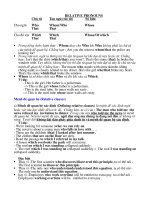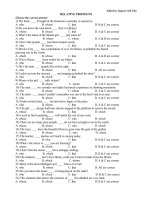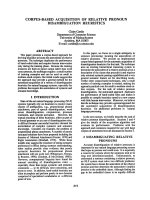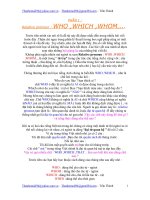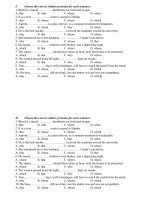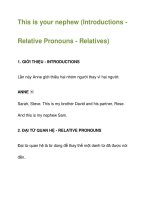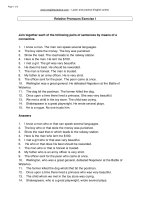relative pronoun
Bạn đang xem bản rút gọn của tài liệu. Xem và tải ngay bản đầy đủ của tài liệu tại đây (56.65 KB, 1 trang )
<span class='text_page_counter'>(1)</span><div class='page_container' data-page=1>
<b>Relative Pronouns </b>
relative
pronoun use example
who subject pronoun for people I told you about the woman <i>who</i>
lives next door.
which subject or object pronoun for animals and
things
Do you see the cat <i>which</i> is lying
on the roof?
which referring to a whole sentence He couldn’t read <i>which</i> surprised
me.
whose possession for people animals and things Do you know the boy <i>whose</i>
mother is a nurse?
whom object pronoun for people, especially in
non-defining relative clauses (in non-defining relative
clauses we colloquially prefer <i>who</i>)
I was invited by the professor
<i>whom</i> I met at the conference.
that subject or object pronoun for people, animals
and things in defining relative clauses (<i>who</i> or
<i>which</i> are also possible)
I don’t like the table <i>that</i> stands in
the kitchen.
<b>Relative Adverbs </b>
A relative adverb can be used instead of a relative pronoun plus preposition. This
often makes the sentence easier to understand.
relative
adverb meaning use example
when in/on which refers to a time expression the day <i>when</i> we met him
where in/at which refers to a place the place <i>where</i> we met him
</div>
<!--links-->

